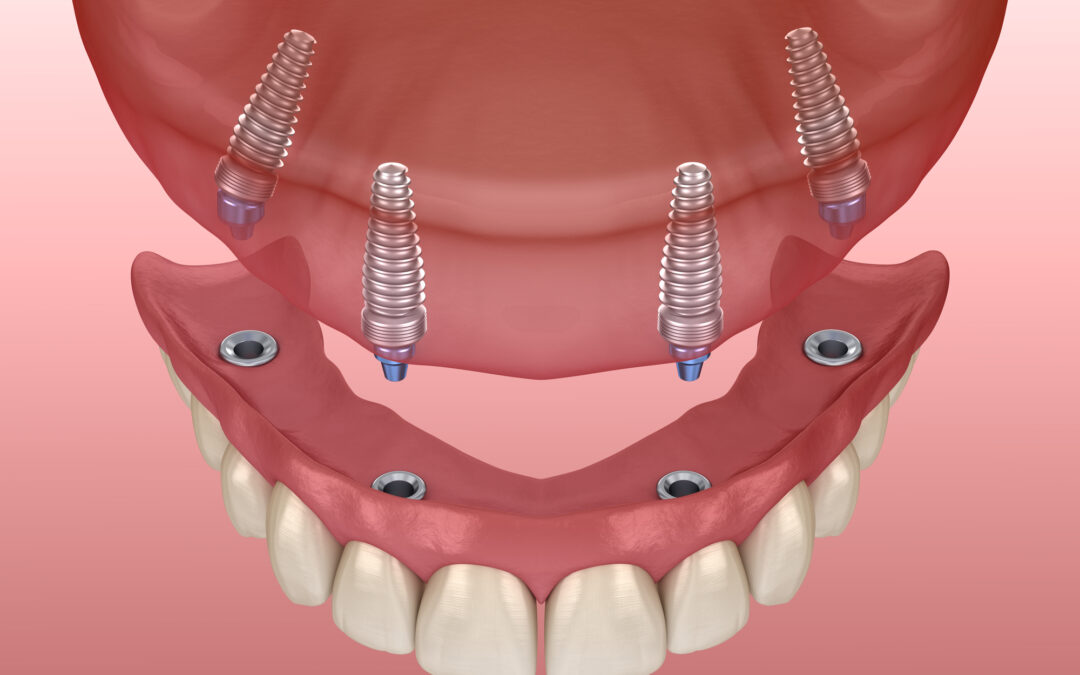When it comes to replacing missing teeth, dental implants and dentures are two popular options that provide functional and aesthetic benefits. However, determining which solution is right for you requires careful consideration of various factors, including comfort, longevity, and cost. In this article, we’ll delve into the differences between dental implants and dentures, with a particular focus on why dental implants are more comfortable than dentures.
Understanding Dental Implants
Dental implants are a permanent solution for replacing missing teeth. They consist of titanium posts that are surgically implanted into the jawbone, providing a sturdy foundation for artificial teeth (crowns) to be attached. The process involves multiple stages, including the initial surgical placement of the implant, osseointegration (the fusion of the implant with the jawbone), and the attachment of the artificial teeth.
One of the key advantages of dental implants is their stability. Because they are anchored directly into the jawbone, implants function much like natural teeth, allowing for comfortable chewing and speaking without the fear of slippage or movement. This stability also helps to preserve the surrounding bone structure, preventing the bone loss that can occur with missing teeth.
Additionally, dental implants are designed to be long-lasting, with proper care and maintenance. Unlike dentures, which may need to be replaced every few years as the jawbone changes shape, implants can potentially last a lifetime, making them a cost-effective option in the long run.
Exploring Dentures
Dentures, on the other hand, are removable prosthetic devices that replace missing teeth and surrounding tissues. They are typically made from acrylic or a combination of acrylic and metal and are custom-fitted to the patient’s mouth. Dentures can be either partial (replacing a few missing teeth) or complete (replacing an entire arch of teeth).
While dentures offer a more affordable alternative to dental implants, they come with certain drawbacks. One of the most common complaints about dentures is their tendency to slip or shift during eating or speaking, which can be uncomfortable and embarrassing for the wearer. Additionally, dentures can cause irritation and soreness in the gums, particularly if they do not fit properly.
Despite these challenges, dentures remain a popular choice for patients who are not suitable candidates for dental implants due to factors such as insufficient bone density or medical conditions that affect healing.
Why Dental Implants are More Comfortable
One of the primary reasons why dental implants are often considered more comfortable than dentures is their stability. Because implants are anchored directly into the jawbone, they function much like natural teeth, providing a secure foundation for chewing and speaking. This stability eliminates the need for messy adhesives and reduces the risk of discomfort caused by slipping or shifting prosthetic teeth.
Furthermore, dental implants help to preserve the integrity of the jawbone by stimulating natural bone growth through the process of osseointegration. This not only enhances the stability of the implants but also prevents the bone loss that can occur with missing teeth, helping to maintain facial structure and overall oral health.
In contrast, dentures rely on the underlying gums and soft tissues for support, which can lead to irritation and soreness, especially if the fit is not perfect. Additionally, the constant pressure exerted by dentures on the gums can accelerate bone loss over time, resulting in changes to facial appearance and decreased stability of the prosthetic device.
Both dental implants and dentures offer effective solutions for replacing missing teeth, each with its own set of advantages and disadvantages. While dentures may be a more affordable option initially, dental implants are often considered more comfortable and offer greater stability and longevity.
If you’re considering tooth replacement options, it’s essential to consult with a qualified dentist or prosthodontist who can assess your individual needs and recommend the best treatment plan for you. Whether you opt for dental implants or dentures, restoring your smile can improve your confidence, oral health, and quality of life for years to come.

